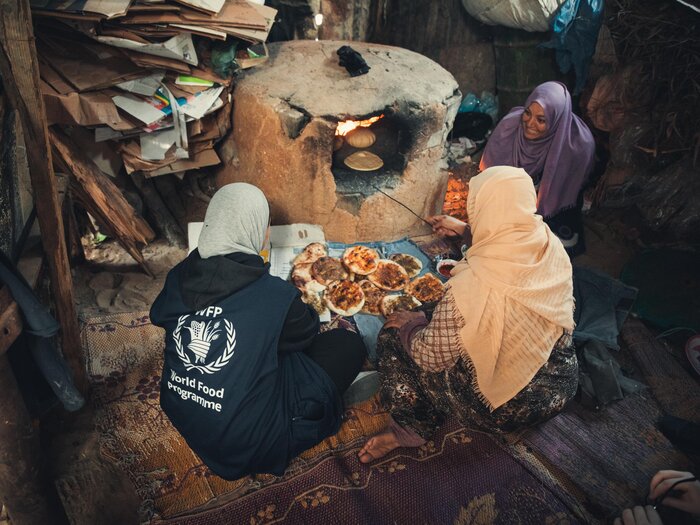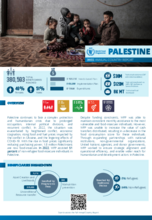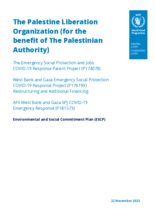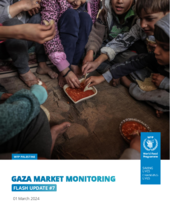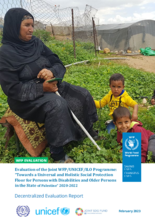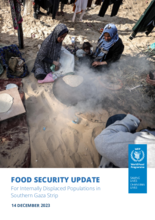Palestine
- 1.1 million
- people are struggling with catastrophic hunger
- Over 1.45 million
- people reached by WFP in February
- 5.3 million
- population across State of Palestine
For decades, Palestine has been facing a protracted and complex protection and humanitarian crisis. The crisis is tied to prolonged occupation, internal political divisions, and recurrent conflict that pose a threat to stability and development of the Palestinian people.
Humanitarian conditions in Gaza are critical following a sharp upsurge in violence in the region in early October 2023. Food and water are running out, shelters for displaced people are massively overcrowded and, without fuel, there is no electricity. Health services are collapsing. In the West Bank also, conditions are deteriorating, and food is running short.
Prior to this phase of conflict, the collapse of all productive sectors, basic social services and infrastructures in Gaza was alarming.
The continuous large-scale security, political and economic unrest in the West Bank and the 15-year sea, land and air blockade on the Gaza Strip have resulted in economic stagnation, loss of land and restricted trade and access to resources, along with high unemployment and poverty rates. These circumstances continue to exacerbate the already dire humanitarian situation and pose serious challenges to the achievement of Sustainable Development Goal 2 in regards to food security and improved nutrition.
What the World Food Programme is doing in Palestine
-
Food assistance
-
WFP continues to provide unconditional food assistance through electronic vouchers, multi-purpose cash assistance and in-kind food parcels to severely food-insecure Palestinians. WFP empowers Palestinians to make the right nutritional choices and be drivers of their overall health through a nutrition-focused social behaviour change communications project that advocates, raises awareness and provides tools for targeted groups to improve nutritional health.
-
Livelihood support
-
WFP provides livelihoods interventions, such as climate-resilient agricultural assets and training, to households and smallholder farmers, equipping them with skills and tools to navigate and adapt their livelihoods to climate shocks and stressors. Through partnering with national institutions and local NGOs, WFP scaled up its resilience-building activities to include greenhouses, vegetable farms, sheep, poultry, and technical and vocational trainings for youth and people with disabilities. By introducing livelihood initiatives in Palestine, WFP helps enable the people we serve to access more basic needs while also boosting the local economy.
-
Capacity strengthening
-
WFP significantly expands its support to national institutions and promotes capacity-strengthening activities. WFP provides tools, guidance, and technical expertise to enhance national institutions' ability to monitor and analyze food insecurity, strengthen the National Social Safety Net, and expand livelihood projects to support national partners in protecting food systems.
-
Enabling partners
-
As a key enabler for the humanitarian response across sectors, WFP has built robust systems to create effective and efficient means of reaching targeted populations for actors involved in the implementation of the Humanitarian Response Plan for Palestine. Through its robust and reliable cash-based transfer (CBT) platform, WFP supported humanitarian and development actors in reaching more Palestinians in need, efficiently and cost-effectively, across different sectors. WFP also provides logistics coordination and an inter-agency community feedback mechanism to partners.
Palestine news releases
Go to pagePartners and donors
Find out more about the state of food security in Palestine
Visit the food security analysis pageOperations in Palestine
Contacts
Office
c/o UNDP/PAPP 4A Yakubi Street, PO BOX 51359 Jerusalem, Israel
Jerusalem
Palestinian Territories

